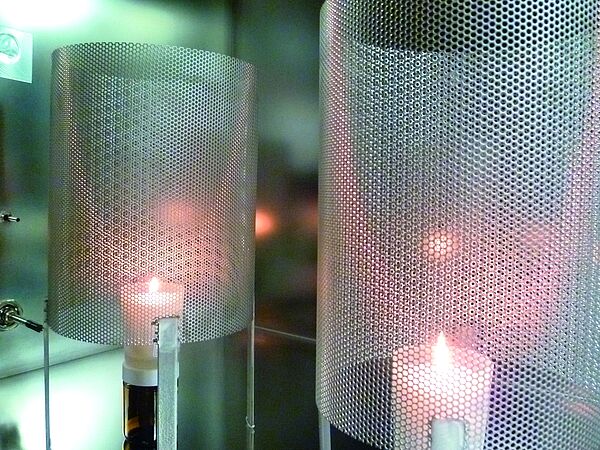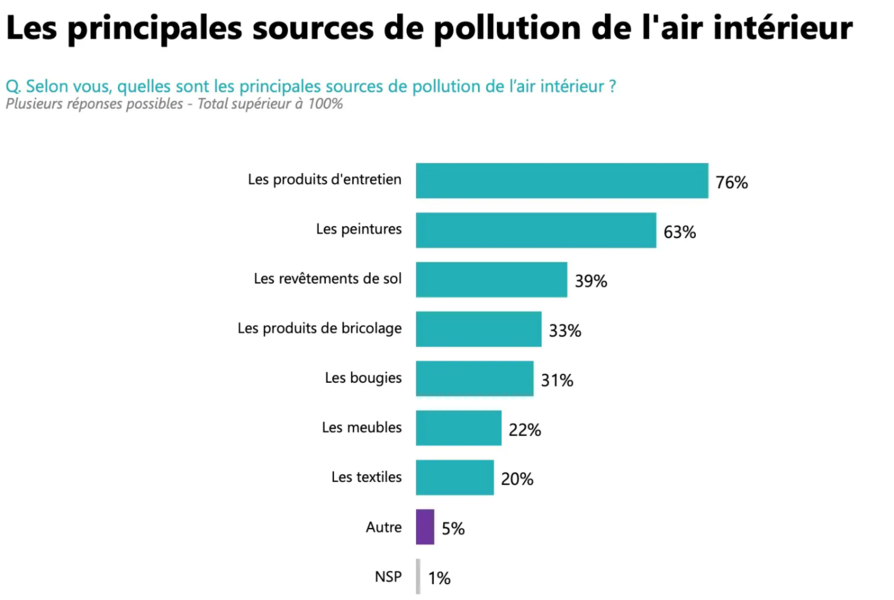
Candles and incense: standards and labelling?
How to make air fresheners that respect the quality of indoor air? Candles, incense, combustion air fresheners: WESSLING analyses your products.
Candles and incense: soot testing, fire safety and mandatory labelling
What are the compliance standards for candles?
Mandatory candle labeling: user safety information
Following Decree n°2017-946, candles, incense and other combustion deodorant products must comply with mandatory labeling. In particular, this concerns safety information relating to:
- ventilation of the room after use,
- avoidance of direct inhalation of fumes emanating from the product.
This information must appear visibly and legibly on fuel air freshener packaging, and is a mandatory step towards product compliance.
Mandatory candle labeling: fire safety
The AFNOR group has translated a number of standards, including one concerning fire safety for candles. This standard requires specific labeling in compliance with European standard EN 15494, including 7 mandatory pictograms. Standard NF 16740 applies to combustion air fresheners such as scented candles and incense. Fire safety tests are carried out in our laboratories. Ask for a quote today.
Soot test on candles:
During combustion, candles and incense emit particles that are subject to specific regulations. Combustion products must comply with the EN 15426 standard for soot emissions, which stipulates that the average soot emission must be less than 1.0 per hour, and that no single cycle, if more than one, must exceed 2.0 per hour. We carry out soot tests in our laboratory in Lyon, France. Please contact our account manager to request a quotation.
Do you have specific needs? Our expertise also enables us to carry out customized analyses according to your needs.

Combustion candles, incense, room fresheners and air fresheners
Are combustion products a source of pollutants?
Combustion products such as candles and incense can be a source of indoor air pollution. They can emit volatile pollutants such as benzene, formaldehyde and volatile particles.
For this reason, combustion products are subject to regulations in accordance with standard NF EN 16738. These regulations cover the safety of emissions from combustion air fresheners (candles, incense, oil lamps). To help candle and incense manufacturers meet these obligations, our experts carry out test chamber analyses in our Lyon laboratory.
How to anticipate regulatory changes and changes in purchasing behavior?

77% of French people are concerned about indoor air pollution.
The growing concern of the French about indoor air pollution has a direct impact on their purchasing behavior. In response to this growing awareness, regulations concerning the analysis of volatile organic compounds (VOCs) are likely to be introduced.
Certain substances emanating from candles and incense are potentially dangerous for frequent users. Although no testing of volatile organic compounds (VOCs) is yet mandatory, it is possible that regulations on this subject will evolve.
Anticipating potential changes is possible by carrying out emissions tests in test chambers. Candle and incense manufacturers who carry out such tests can position themselves positively in the eyes of consumers by demonstrating the high quality of their combustion products.


